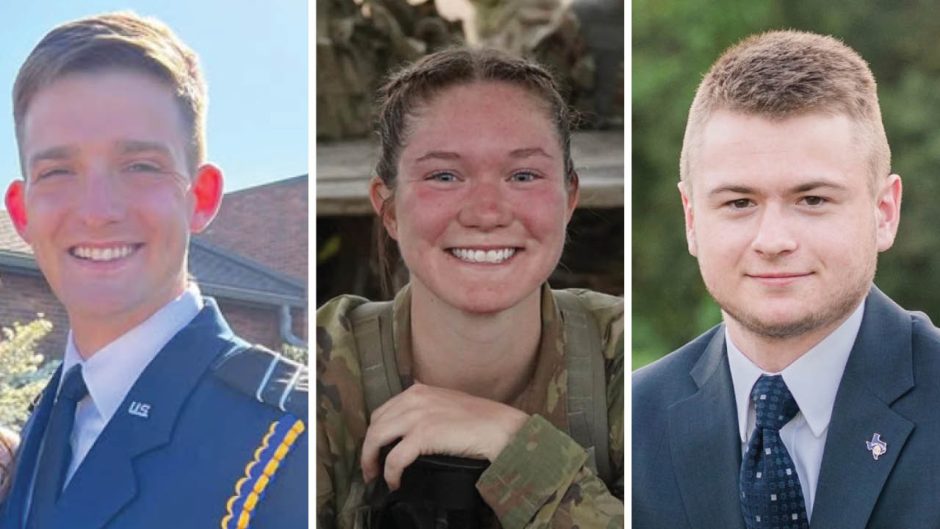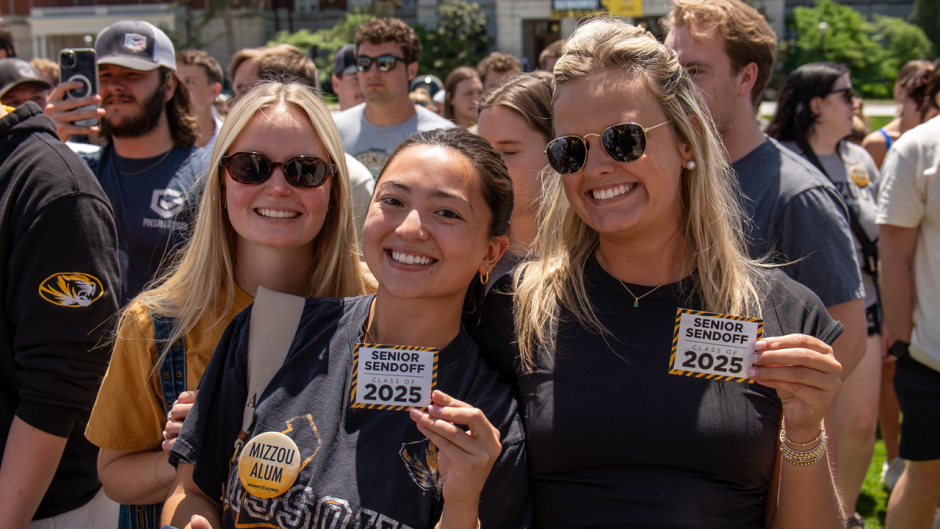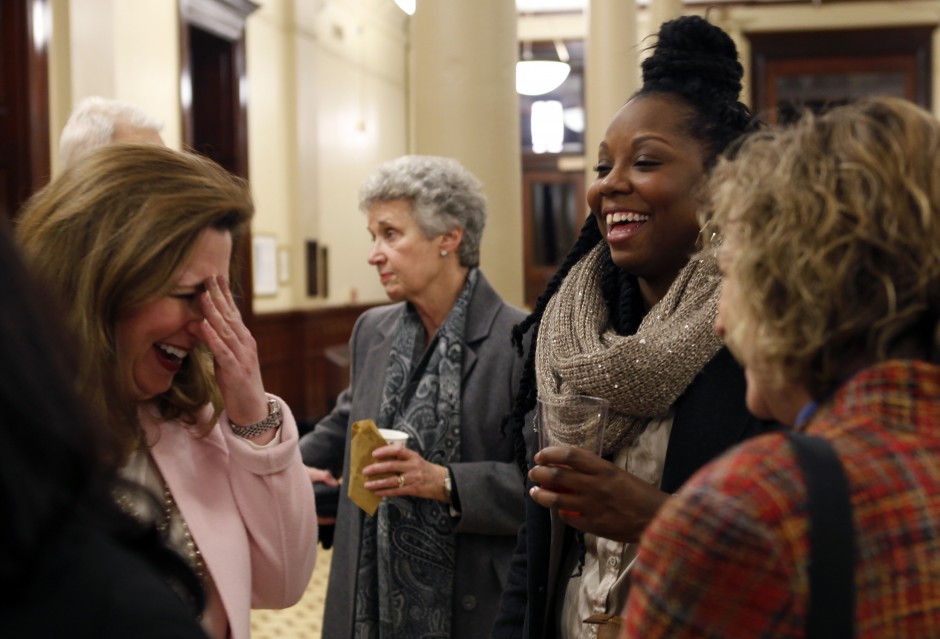
From left, Zora Mulligan and Tamar Hodges laugh with Kelley Stuck during the reception in the Jesse Hall rotunda just before the "Contesting Slavery: Enslaved Missourians' Enduring Struggle for Self Determination" presentation, the first lecture of the African-American Experience in Missouri series.
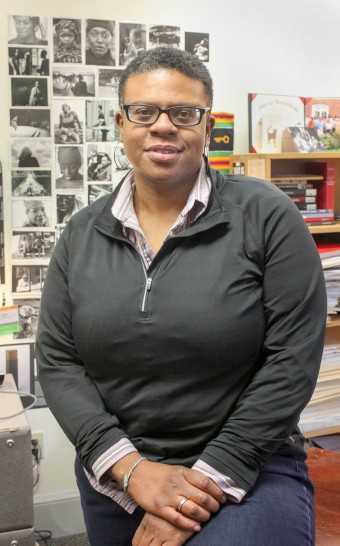
Keona Ervin, a Mizzou history professor, curates a new lecture series titled the African American Experience in Missouri.
A new lecture series — The African American Experience in Missouri — is bringing scholars from across the country to campus for roughly a dozen lectures continuing into 2017. The State Historical Society of Missouri’s Center for Missouri Studies and MU’s Division of Inclusion, Diversity, and Equity cosponsor the series, which is free and eye-opening to the public.
“Some of these stories are hard to hear,” says history Professor Keona Ervin, who curates the series with society Executive Director Gary Kremer. “But exploring Missouri’s untold stories is key to better understanding the role race has played in creating our modern-day circumstances,” she says. What’s more, Kremer says, “I hope that greater understanding will serve to improve race relations on the MU campus and in the larger community in the present and the future.”
On Feb. 3, during Black History Month, Diane Mutti Burke, associate professor of history at the University of Missouri in Kansas City, gave the inaugural lecture, Contesting Slavery: Enslaved Missourians’ Enduring Struggle for Self-Determination. During her talk, the audience of about 200 in Jesse Hall Auditorium learned about slavery in mid-Missouri’s small family farms. “The way slavery was practiced in central Missouri created living and working conditions that compromised the strength of enslaved families as well as black communities. It also increased the possibilities for physical and psychological abuse,” Mutti Burke said. “Yet, at the same time, it enhanced enslaved Missourians’ opportunities to effectively resist in a variety of ways.”
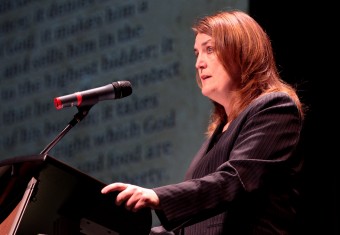
Diane Mutti Burke, associate professor of history at the University of Missouri-Kansas City, addresses Jesse Auditorium during her presentation.
Ervin says it is appropriate to examine racism and slavery specific to Missouri. As a border state where slavery was practiced legally, Missouri has experienced racial tensions for much of its history, she says. “The tensions are products of antiblack racism and black resistance.” Beyond the pre-Civil War era, key race-related moments include the rise of jazz culture in Kansas City, housing discrimination in St. Louis, and the sharecroppers strike in 1939. More recently, she says, events at Mizzou and in Ferguson, Missouri, have made the state “ground zero for race protests and the emergence of national dialogs regarding race.”
Future presentations include topics such as the meaning of race, urban decline and the rise of jazz culture. On March 23, Martha S. Jones, Arthur F. Thurnau professor at the University of Michigan, will present #SayHerName: Black Women and State Violence in the Case of Missouri v. Celia, A Slave. “Celia’s story is deeply powerful and unfortunately very tragic,” Kremer says. “She was purchased by a local man in Callaway County and suffered tremendously for years before she eventually stood up for her basic human right to decide her own fate.”
Ervin envisions the series as background that’s “crucial to charting a path forward. Finding solutions is something we will have to do together.”
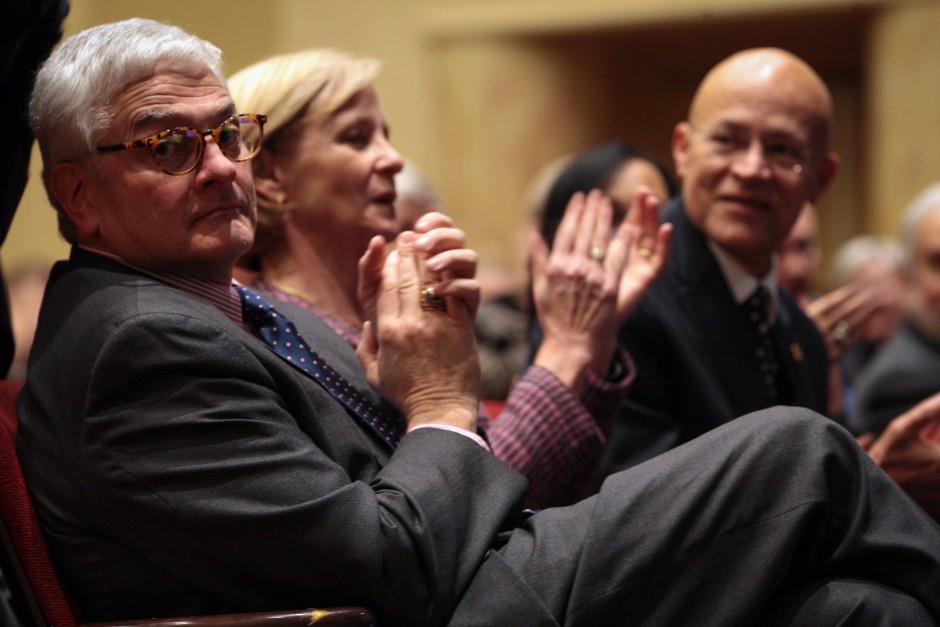
Interim Chancellor Hank Foley applauds as Executive Vice Chancellor and Provost Garnett Stokes is introduced by Interim Vice Chancellor for Inclusion, Diversity and Equity Chuck Henson in Jesse Auditorium Feb. 3.

